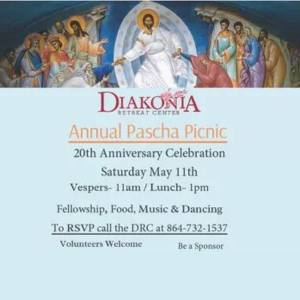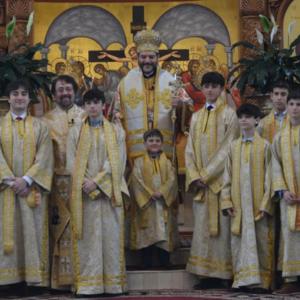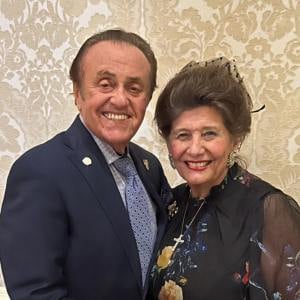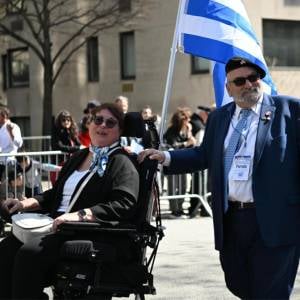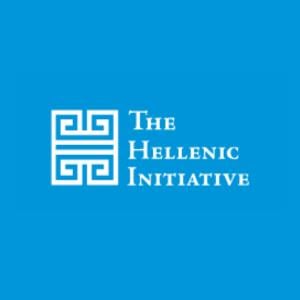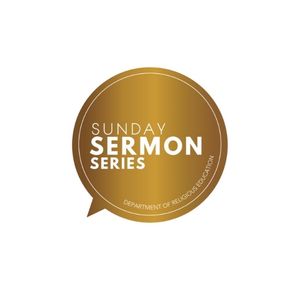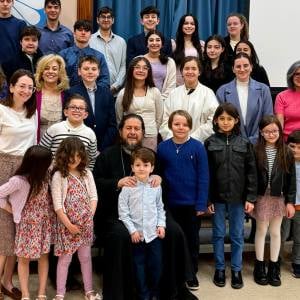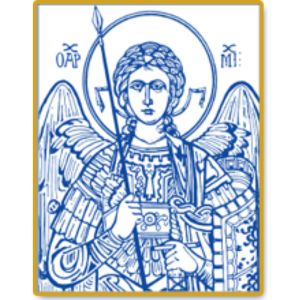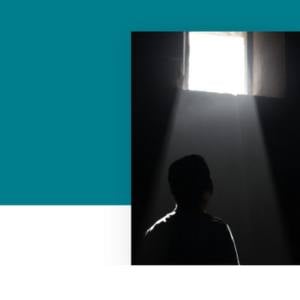His Eminence Archbishop Elpidophoros of America
Homily for the Sunday of the Fathers of the First Ecumenical Council
Saint Demetrios Greek Orthodox Church
Union, New Jersey
June 13, 2021
Beloved Brothers and Sisters in Christ,
Today, we find ourselves poised between the two great feasts of ascent and descent – the Ascension of our Lord, just this last Thursday, and the descent of the Holy Spirit on Pentecost, which arrives next Sunday, fifty days after the Resurrection.
In His Ascension, the Lord carries our shared humanity from earth into Heaven itself. He presents his own flesh – the flesh that we consume and are transformed by in the Holy Eucharist – to His Heavenly Father.
And in the coming Pentecost, the Lord sends forth the All-Holy Spirit throughout the earth, so that, as the Prophet Habakkuk foretold:
…the earth shall be filled with the knowledge of the glory of the Lord, as the waters cover the sea.
And thus, my beloved Christians, on the Sunday between these two momentous celebrations, the Church ordains this Sunday to be the Sunday of the 318 Fathers of the First Ecumenical Council in Nicaea.
This is the first of the Seven Great Ecumenical Councils, and the one that gave to us the Creed – the Symbol of our Faith. The Fathers of this First Council, convened by Saint Constantine himself in the year 325, brought forth a simple, yet sublime synopsis of what it means to be a Christian. Indeed, they established the boundaries of Christian thought and philosophy, which we call “theology.”
These boundaries exist between the culmination of the Lord’s saving ministry in the flesh upon earth, which occurs at His Ascension to glory, and the Feast of Holy Pentecost, which is the manifestation of Christ’s continuing mission on earth – in and through the Church.
That is why this particular Sunday is reserved for the Fathers of the First Ecumenical Council. For this Council rests between these two great Feasts like an anchor, keeping the Church safe in the port of right belief, which is the very meaning of “Orthodoxy.”
Through the Creed, the Fathers established the boundaries of the faith that would last for all eternity. And as it says in the Book of Proverbs:
Μὴ μέταιρε ὅρια αἰώνια ἃ ἔθεντο οἱ πατέρες σου.
Do not move the ancient boundaries which your fathers have set.
My Brothers and Sisters,
Today, we are reminded by the Church that this Faith of the Fathers is our inheritance – one that leads to life eternal.
That is why we celebrate the great City of Nicaea on this Sunday. Nearly three hundred years after the Descent of the Holy Spirit on the first Pentecost Sunday, that same power of the Holy Spirit was manifest at the First Ecumenical Council. The Fathers of the Church came together in Nicaea to confirm the Church’s experience of the Living God. Just as the Disciples were the eyewitnesses of the Ascension and thus, the Divinity, of the Lord, the Fathers of Nicaea were the witnesses to the “pillar and ground of truth,” which is the Holy Church of the Living God.
Therefore, my beloved Christians, let us rejoice and be glad in the blesséd 318 Fathers of the First Ecumenical Council, who codified the Symbol of our Faith – later augmented at the Second Ecumenical Council in Constantinople. At every Divine Liturgy we affirm our faith, when we say with these Fathers: “Πιστέυω – I believe!”
Through the prayers of the 318 Fathers of the First Ecumenical Council in Nicaea, may we always hold to the faith of the One Who ascended for our sake, and sent forth the Holy Spirit, that we always glorify Father, Son and Holy Spirit, now and ever, and unto the ages of ages.
Amen.


